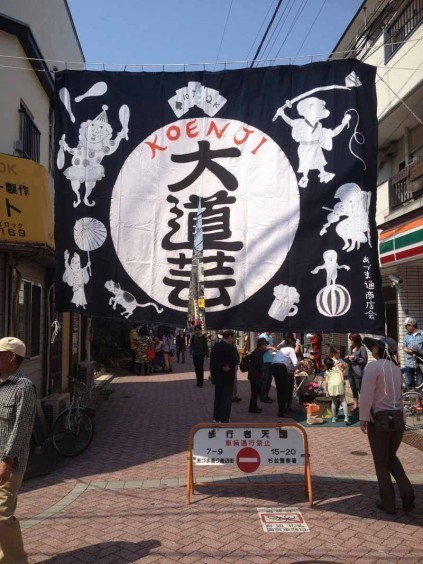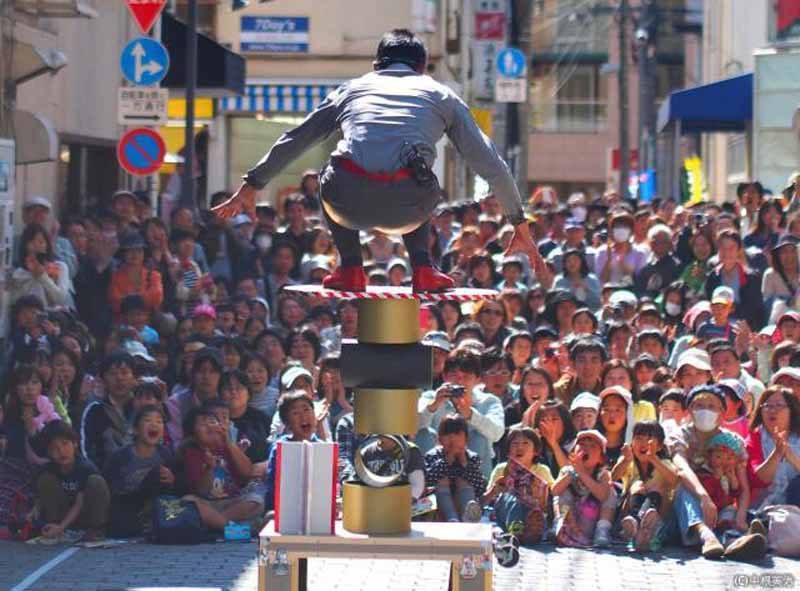Like this post? Help us by sharing it!
Tour leader Steve has lived in Japan for over ten years, and has had the privilege of living in a variety of countries over the years – from Germany and France to South Korea, Canada and the USA. These days, his home is Koenji: a small town in west Tokyo. Here, he introduces his adopted hometown…
As it is somewhat too expensive to rent an apartment close to the happening station area, for the past four years I have lived a 15-minute walk from the centre of Koenji. With its convenient location on the Sobu and Chuo commuter railway lines, key arteries into the beating hearts of Shinjuku (just 10 minutes away), Akihabara and Tokyo Central, Koenji is what’s known as a dormitory town. It certainly has its salaryman and OL (“office lady”) population, which heads to and from centre of the capital day in, day out.
However, Koenji is more than a commuter town. The area has also long been renowned for its alternative scene, boasting a considerable creative, entrepreneurial, bohemian, even activist population that has long and harmoniously complemented the young-family-and-retiree population of Koenji.
Away from the station, Koenji’s neat, narrow residential areas are peaceful havens of suburban order and mutual respect, with perfectly maintained tiny gardens and immaculately clean streets. Meanwhile, its lively centre also has a 24-hour pulse. Tiny backstreet bars and raucous izakaya (pubs) are often refueling late-night/early-morning drinkers until the first trickle of commuters start to wind their way to the station for a new day in the office.
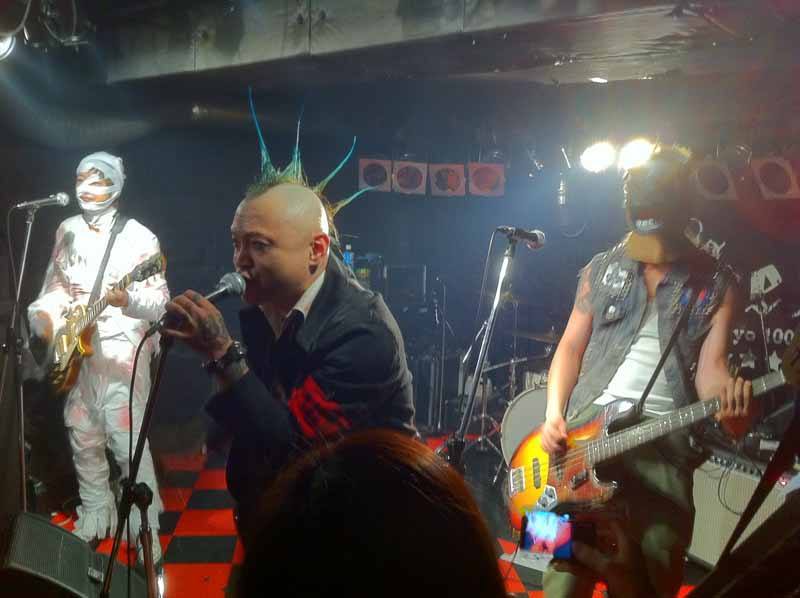
The town lends its name to the district surrounding the pleasant Shukuhouzai-Koenji Temple, just five minutes east of the station. This modest temple is a peaceful diversion, especially in the autumn, when it boasts the bright yellow foliage of gingko trees, and glorious camellia hedges. But for most visitors to the area, Koenji is not a town of sights, but of vibe. It is very much a place to come to shop, peruse, eat, drink, contemplate, chat, catch some music, and to generally enjoy a laid-back, non-pretentious, hip, liberal, non-touristy Japanese urban experience.
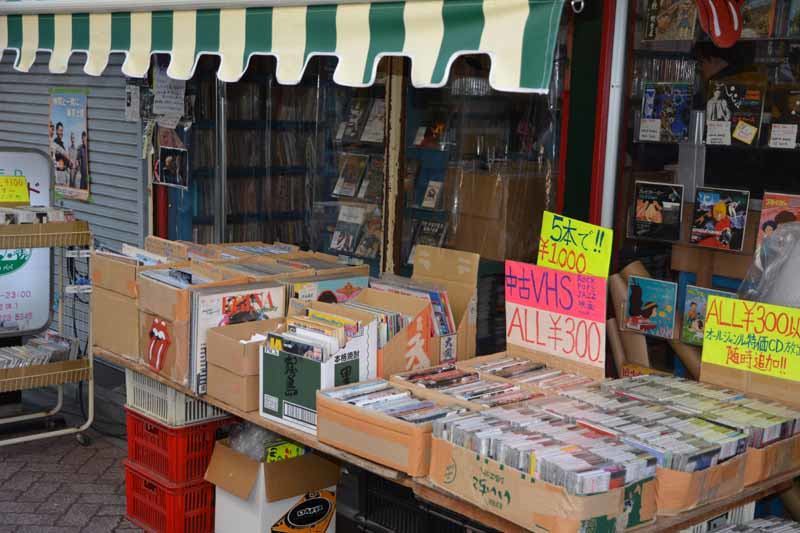
The town assumed a hippy reputation in the 60s and 70s, and today its musical and fashion scene are still tangibly to the fore as you stroll the streets of Koenji. Music is all around: record shops attract obsessive vinyl collectors prepared to flick through thousands of sleeves in search of that prized disc; under the railway tracks, singer-songwriters often brave the cold and din to belt out their tunes to any passing pedestrian. It is not uncommon to see a small cluster of businessmen gathered around a sole singer with guitar, enjoying a brief escape in the comfort of those chords and the harmony of voice, even if just for a moment.
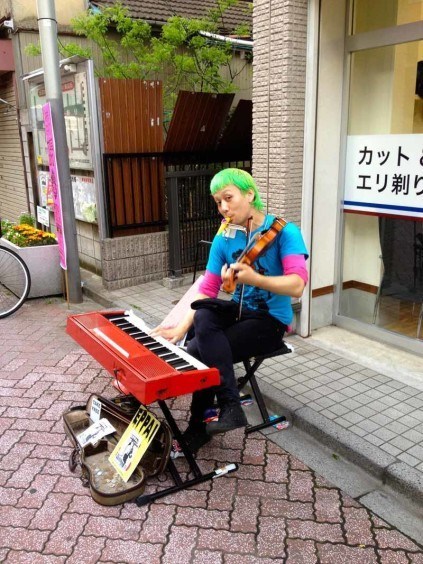
You rarely walk the streets here without passing someone with a guitar strapped to their back – punk/rock grandfathers and university indie kids alike. Fantastically equipped practice studios are dotted all around, where enthusiasts can craft an original indie-rock anthem, or perfect their high-energy Led Zeppelin cover band performance.
Although often labeled as the birthplace of punk rock in the capital, the music on offer is varied. On any given evening, at live venues such as Club Missions, you can certainly still get a hit of anarchy from time to time. Go to UFO Club for the quirky and avant-garde; High for indie rock and an electro-pop performances; and Penguin House for, well… anything goes!! Amateur performers range from teens to retirees, with pretty much everyone doing it for simply the love of music.
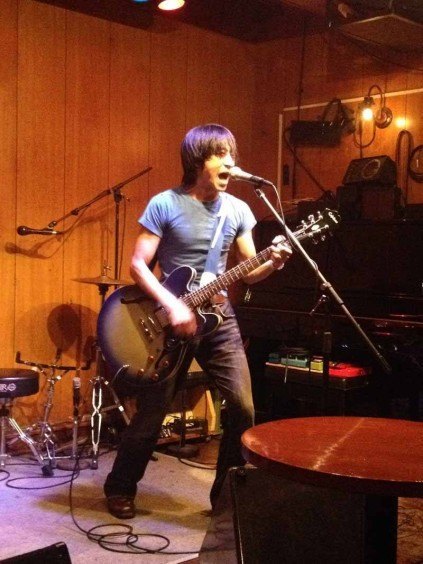
Live music is usually over by 10pm, but then it’s the turn of Koenji’s tiny music bars, with barely enough room for a dozen people. Their owners will proudly dig out rare records, CDs and DVDs on request, and reminisce with customers about the past glories of their musical idols, deep into the night.
Like better-known Shimokitazawa, Koenji did not undergo large-scale postwar development, and so to this day is filled with older, low-level buildings crammed with small businesses, blessing the area with so much more charm and atmosphere than stale chain shops and restaurants ever could. Of course, its great to feel that the money you are spending is staying within the community, too.
I can proudly say that there is not a single department store in the area! The majority of Koenji’s shopping is to be found along and just off of several main shotengai (shopping streets), which branch out from the station area: Azumadori, the covered PAL shopping arcade, and Junjo shotengai to name a few. These boast a mix of everything: fishmongers, butchers, bakeries, fruit and veg sellers, florists, hairdressing salons, clothes boutiques, quirky curiosity shops, non-chain coffee houses and temporary galleries. There is even a shop for second-hand (non-opened) alcohol, presumably for teetotalers, who can sell on unwanted gifts of sake, whiskey and any other alcoholic drink under the sun!
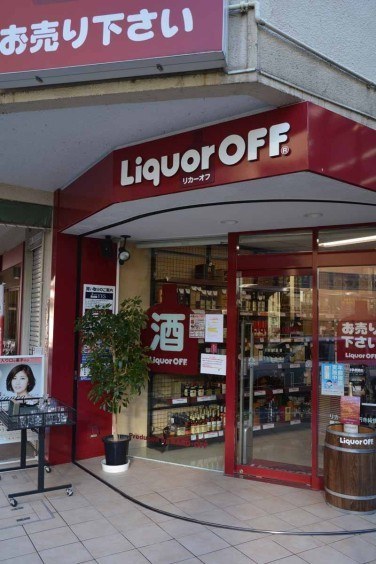
Hip young fashion shop owners enhance the hippy vibe of Koenji with funky footwear and non-conventional clothing, hairstyles and colours. Their shops are decked out with psychedelic colours and zany fashions, but the local Koenji atmosphere is always maintained by shopping establishments such as the extremely vocal Takano Seika, a local institution where local elderly women and young families jostle for cheap, quality fruit and veg, while the shopkeepers exaggeratedly bellow out “irrashai!!” (“Welcome!!”) to passersby. Whether or not partly for self-amusement, these cries are a great promotional tool and known by many a Koenji-ite.
One of Koenji’s must food experiences is yakitori: barbecued, skewered chicken. A number of establishments line streets around the station, with several squeezed into nooks and crannies underneath the tracks. These eateries, emblazoned with chochin paper lanterns, offer great atmosphere. Follow your nose and you are bound to stumble across one. Pull up a low stool at a makeshift table of crate and wooden board, chew on marinated skewers, share drinks and chat away to the locals, for the perfect Japanese street food experience.
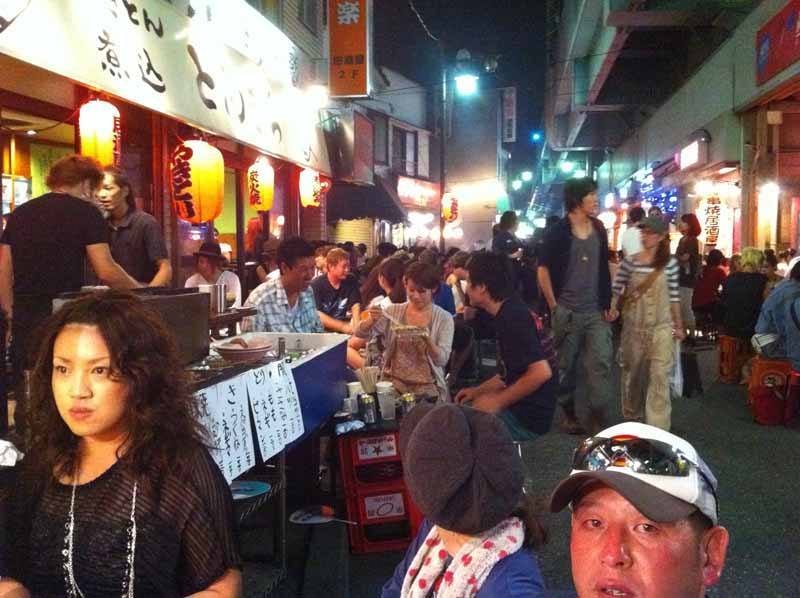
If in need of a little more comfort, within a stone’s throw of the station there are, of course, sushi, soba, ramen, okonomiyaki pancake and tempura restaurants – along with a wealth of izakaya, serving all varieties of Japanese food. If you fancy high-end, authentic Italian or French, Southeast Asian, Balinese, Lebanese, Nepalese Indian, Mexican, Irish… Koenji has that covered too!
Although Koenji is an extremely safe and peaceful place to live in, it certainly has a little edge to it – there are more tattoos modestly on show here than in most other areas, and I have even spotted the odd scrawl of (GASP!) graffiti here and there. The town is known for its left-wing political activism, indeed its anti-war and most notably in recent years, anti-nuclear demonstrations have made the headlines.
In April 2011, some 15,000 protesters gathered here to voice their feelings about the country’s nuclear power policy, prompting ongoing protests in other areas of the capital. It’s an area where, thankfully, right-wing nationalists don’t ever bother to visit, to bombard the locals with their megaphones and extreme views. Koenji is a town where you can feel free to be what you are, and people accept that.
Festival and community spirit is very much to the fore, with Koenji playing host to a number of major cultural events throughout the year. On the last weekend of August, the Awa Odori festival hits town. Over 10,000 participants, divided into ren (troupes), bring the community together with music and dance, drawing up to a million visitors during the two days of festivities. Locals come out onto the street with food and drink – catering, serving, selling and consuming at the same time. Whether vendors at every little stall or table are fully licensed to do so is another matter, but that’s part of the spontaneous fun of the festival, and reflective of that rebellious streak that the town possesses, in restrained measures!
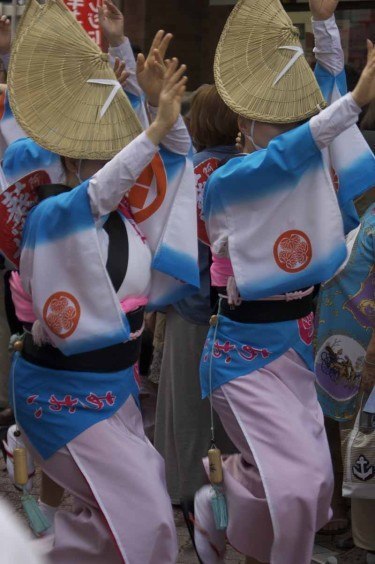
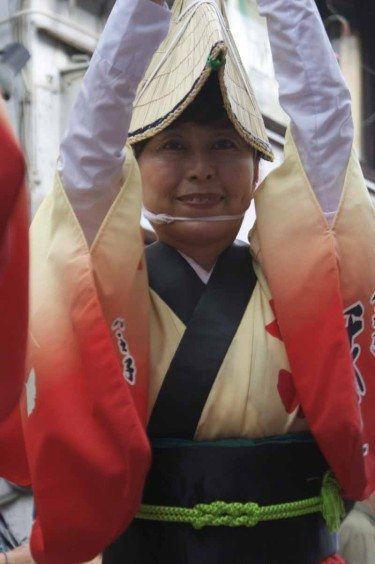
Koenji’s version of Tokushima City’s 400-year-old Awa Odori festival has been held since 1957, and involves dance troupes from all over Japan. The wide smiles, costume colours, heart-pounding beat of wadaiko drums, hypnotic ring of gongs, energizing cries of “yatto-sa, yatto-yatto” from the female troupe members and wild and expressive dances of their male counterparts, along with the smell of culinary delights served on the streets, and the inevitable alcohol charged atmosphere, make for a great summer experience. Everyone in the town can’t help but be drawn in to the revelry!
The outdoor festivities don’t end there. In late October, for two days, Koenji Fes hosts a series of talks, music performances, comedy acts, community workshops, book fairs and even professional wrestling events! When things start to warm up in late April, the Bikkuri Daigogei (Surprise Big Street Art Festival) takes place, with dozens of designated outdoor performance spots throughout town holding people captivated with daring, acrobatic street performances, comedy, juggling, music, magic and other and performance arts.
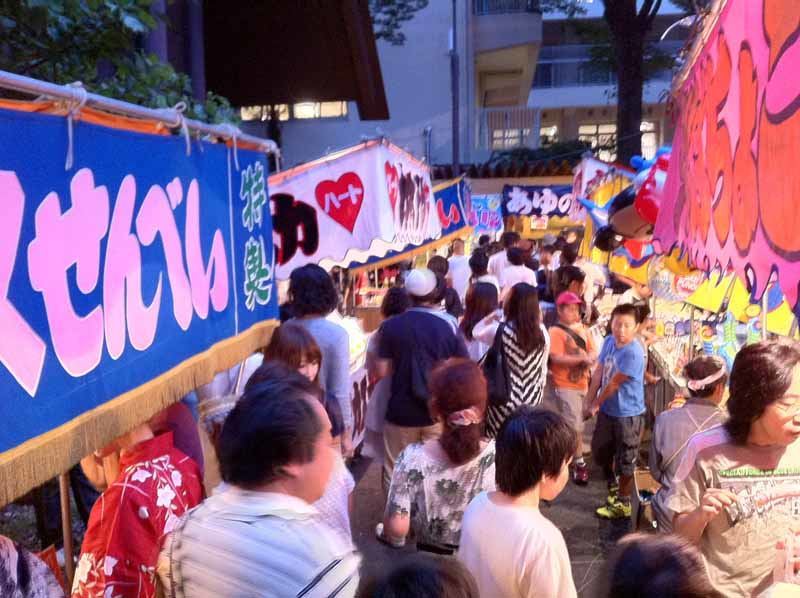
Although Koenji normally ducks under the tourist radar, I have started to notice the occasional foreign traveller trundling a suitcase out of the station and into to the Mets or the Ark Tower – two of only a very few hotels in the area. I always wonder if these visitors take the time to explore the town or just use it as a place to rest for the night. I sincerely hope a little of both! Even if you don’t come and stay in Koenji, with its convenient location on main railway lines, just outside central Tokyo, it is a great place to check out for half a day, and a little into the night! I may only live on the fringes of Koenji, but I have grown to love it, and feel proud to introduce it to you as “my town”.
